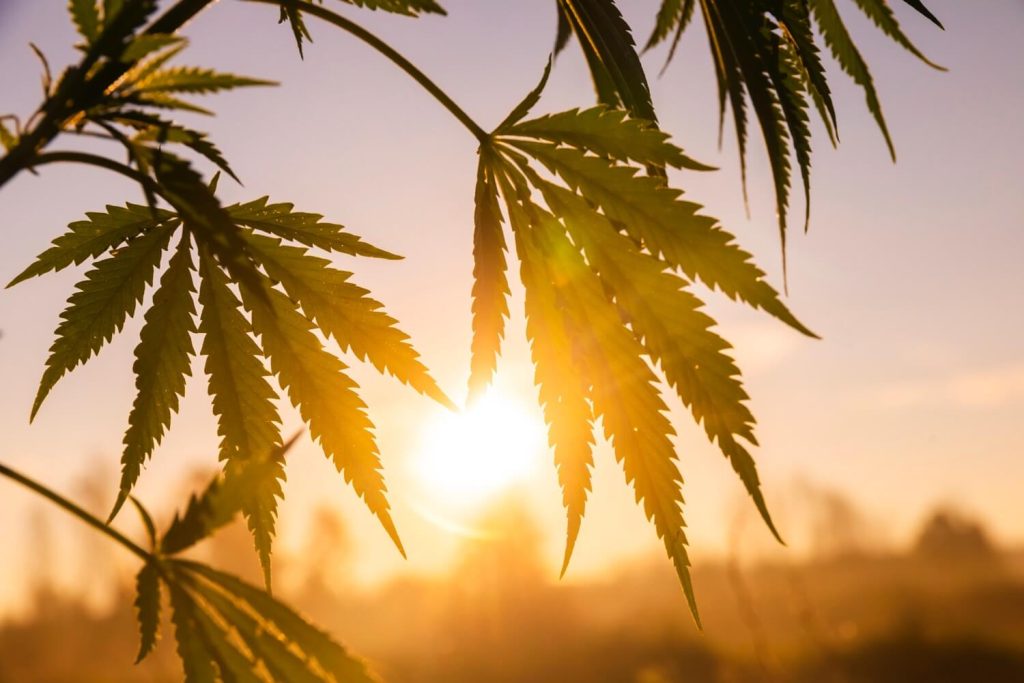
In 2017, West Virginia signed SB 386 into law and created the state’s first Medical Cannabis Act.
For patients suffering from severe pain, this relief couldn’t come soon enough.
The opiate epidemic has had a significant impact on West Virginia’s population. But now, thanks to the Medical Cannabis Act, patients have access to a less risky (if not equally effective) pain reliever.
Interested to learn more? Read our guide to West Virginia’s medical marijuana program and laws.
We’ll cover everything from how to apply for a WV medical cannabis card, to the state-mandated limits on the types and amount of marijuana you can purchase.
The process for applying for a West Virginia medical marijuana card is similar to that of other states.
The first step is to book an appointment with a physician who’s qualified to give you a medical marijuana (MMJ) evaluation. Only physicians who have undergone a four-hour course and are registered with the West Virginia Office of Medical Cannabis can issue a physician’s certification.
If they determine that MMJ is right for you, they’ll complete the necessary paperwork — a medical marijuana certification — that you’ll need before you can apply with the state.
Once you have the certification, the next step is to visit the WV Office of Medical Cannabis website and complete the online application.
After filling out the application and paying the $50 fee, it typically takes anywhere from 30 to 60 days for the application to be reviewed and approved. The state will then mail your official medical cannabis card to you.
Later in this article, we provide a detailed overview of the WV MMJ application process.
For some, getting a doctor’s recommendation can feel like one of the biggest hurdles to accessing medical marijuana.
Patients can only get an evaluation from a physician who is registered with the Office of Medical Cannabis, and therefore legally able to make that determination.
This means that even if you’re already established with a primary care physician, they may not have the qualifications to evaluate you.
So what can you do?
The easiest way to find a state-approved MMJ doctor is through Marijuana Doctors. We connect you with experienced, local medical professionals who can evaluate you for medical marijuana.
You can use the website to read reviews from other patients and even book your first appointment.
West Virginia allows medical cannabis patients to use telehealth, aka telemedicine doctor visits, to undergo their medical marijuana evaluation. That means if you don’t live near a medical marijuana doctor, you can conveniently book an appointment with them over video conference or by phone.
Once you schedule an appointment, it’s recommended that you call your primary care physician’s office and request copies of any medical records related to your condition. You’ll need to give these to the MMJ doctor so that they have as much information as possible about your medical history and treatment.
If you want your physician to send your medical records to your MMJ doctor, you may need to sign a HIPAA authorization form that gives your doctor permission to share the records with them.
You Might Like: Which States Offer Medical Cannabis for Mental Health Conditions?

Many people who suffer from painful medical conditions are hesitant to try stronger, opiate-based medications — and for good reason. The opioid epidemic has devastated many communities, including communities in West Virginia.
Although opiate medications can aid pain relief, they are also highly addictive. Opiate withdrawals are often severe and debilitating. Many people who have been prescribed opiates have become dependent or addicted to these substances. Fortunately, studies show that access to medical cannabis has reduced the number of opiate prescriptions.
Medical marijuana is also much less risky than opiates. There is no risk of a fatal overdose, and studies indicate that it’s just as effective at reducing pain.
There are other perks to choosing medical cannabis over opiates, too. Cancer patients who are undergoing chemotherapy have found that medical marijuana helps to stimulate their appetite.
Because there are so many types of medical cannabis products on the market, patients can choose the products they love most without all the undesirable side effects.
You can apply for West Virginia’s medical marijuana program if you are a legal resident of the state, have a valid ID, and are at least 18 years of age or older.
Minors are eligible as well, but the state requires them to have a registered caregiver who can purchase and administer the medical marijuana on their behalf.
Patients must also be diagnosed with a qualifying medical condition. To confirm the diagnosis, they will need to obtain a medical cannabis recommendation from a qualified physician.
Once a patient has a certification from their doctor, they can apply for an MMJ card online through the Office of Medical Cannabis’ registration portal.
In the portal, you’ll answer a few questions and upload the following documents:
You’ll then pay the $50 fee and submit the application.
The application typically takes 30 to 60 days to process. You will receive updates about the status of your application via email. If your application is missing information or has been denied, you will be informed of the reason.
The $50 registration fee may be waived for those experiencing financial hardship.
Only people who are diagnosed with a serious medical condition, as determined by the Office of Medical Cannabis, can apply for a medical marijuana card.
West Virginia includes the following in its list of serious medical conditions:
Some of these health conditions leave room for a doctor’s interpretation. If your quality of life is diminished because of pain, there are options.
If you don’t yet have a formal diagnosis but are experiencing uncomfortable health-related issues that you think medical cannabis could relieve, there’s no harm in scheduling an evaluation.
There are two reasons why a medical cannabis patient may need to designate a caregiver.
First, all patients who are under the age of 18 are required to have a registered caregiver. This is typically a parent or legal guardian. If no parent or legal guardian exists, the caregiver must be approved by the OMC.
Some adults may need to designate a caregiver to help them, as well. This is especially true for patients who may be too ill to leave their home and shop at a dispensary. They can benefit from having a caregiver who is authorized to purchase and deliver their medical marijuana.
All caregivers must pass a background check and register with the Office of Medical Cannabis through their online registration portal.
Caregivers are required to provide the following supporting documentation:
Caregivers are issued an MMJ ID card, which they can use at any West Virginia dispensary. They’re also required to pay an annual $50 registration fee. If the caregiver is experiencing financial hardship, they can request a waiver of the fee.
Read About: How Does Medical Cannabis Affect Quality of Life?

As the state of West Virginia continues to expand its medical cannabis program, more dispensaries are opening up.
In 2021, Trulieve — located in Morgantown — became the first medical marijuana dispensary to open in the state. Due to the increasing demand, new dispensaries continue to open in cities like Charleston, Martinsburg, and beyond.
This dispensary locator can help you find a location near you. Just type your zip code in the search bar to see a list of all nearby dispensaries. You can use the locator to check out reviews, get directions, and more.
In West Virginia, the following types of cannabis-based products are currently legal:
Any type of cannabis that is considered medically suitable for vaporization is allowed, except for cannabis in plant form or dry leaf. Edibles, such as brownies and other baked goods, are also prohibited.
Once you’ve received your medical marijuana card, you’ll be able to purchase a 30-day supply.
However, WV state law does not define what actually qualifies as a 30-day supply. The amount will be based on your doctor’s dosage recommendation.
Only qualified patients or their designated caregiver can purchase MMJ.
Due to consumer demand and limited inventory, medical marijuana is a little more expensive in West Virginia than other states.
On average, here’s what you can expect to pay:
Most dispensaries have websites where you can browse their inventory to find products. However, you must visit the dispensary in person in order to make a purchase.
Patients who are too sick to drive to the dispensary are encouraged to register a caregiver. The state can authorize the caregiver to purchase, transport, and administer medical cannabis on their behalf.
No, recreational cannabis is not legal in West Virginia at this time.
If passed, House Bill 2091 — which aims to legalize possession of one ounce or less of marijuana — could change that.
Based on trends, most states tend to legalize medical marijuana before they legalize recreational marijuana, if at all. It’s possible that West Virginia could legalize recreational marijuana soon, but there is no guarantee.
At this time, it is not legal to grow marijuana in West Virginia. This law applies even if you have a valid medical marijuana card.
Because West Virginia has many rural residents, the state has considered the possibility of allowing patients to cultivate a small number of plants at home.
However, no law has been passed yet.
The status of marijuana use – both recreationally and medically – can get quite confusing because each state has their own laws. These laws often conflict with federal law, making it more confusing.
Medical marijuana laws are constantly in flux, so it’s a good idea to check with local authorities to see what the current guidelines are.
The good news is that society is beginning to recognize the benefits of medical marijuana. People are learning that it’s much less harmful than some of its pharmaceutical counterparts, and discovering the crucial role it plays in alleviating suffering and increasing quality of life.
Up Next: From Smoking to Dabbing to Edibles, How Long Does a Cannabis High Last?